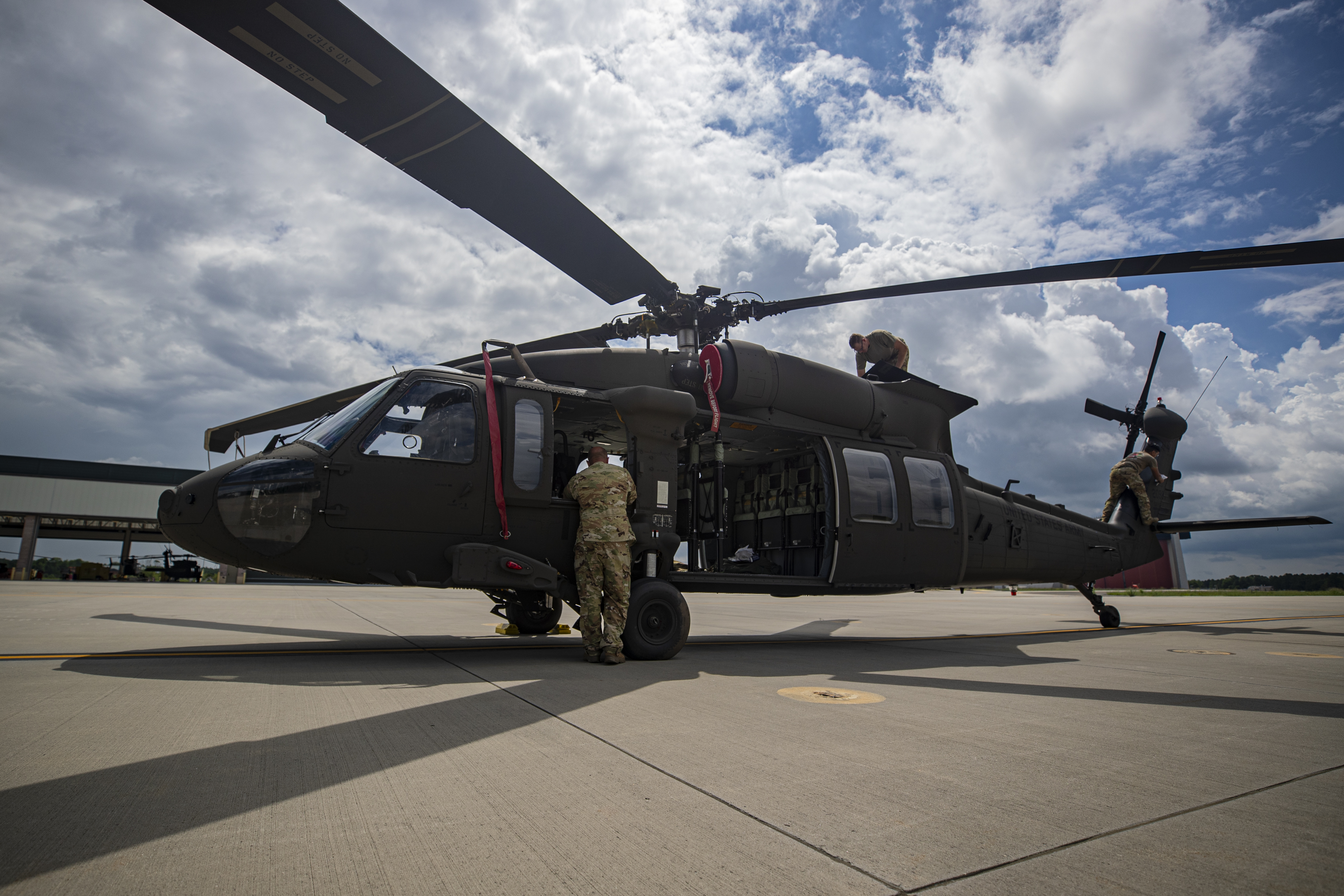UH 60 Technical Specs and Performance Evaluation
UH 60 Technical Specs and Performance Evaluation
Blog Article
The Influence of Sustainable Practices on the Future of Aircraft Workflow and Emissions Reduction
As the aviation industry faces increasing scrutiny over its environmental influence, the adoption of sustainable methods becomes an important path toward future aircraft operations and discharges decrease. Advancements in sustainable aviation fuels and improvements in hybrid propulsion innovations stand at the center of this makeover, encouraging significant reductions in greenhouse gas discharges. However, the effective integration of these campaigns pivots on a selection of elements, consisting of regulative structures and sector cooperation. The concern continues to be: exactly how will these advancing techniques improve the dynamics of flight and add to a more lasting future?

Review of Lasting Practices
Sustainable methods in aircraft procedures incorporate a variety of techniques intended at decreasing ecological effect while maintaining operational performance. These techniques are crucial in the air travel sector's commitment to decreasing its carbon impact and sticking to international ecological criteria. Trick campaigns consist of optimizing trip courses to reduce fuel intake, boosting upkeep procedures to ensure aircraft operate at peak efficiency, and executing innovative innovations such as winglets and light-weight products that boost the rules of aerodynamics.

Training and involving team on sustainability techniques also play a vital function, promoting a culture of environmental obligation within companies. On the whole, the assimilation of these sustainable practices not only helps in reducing discharges yet also enhances the long-lasting viability of the air travel field, ensuring it meets the demands of both clients and regulative bodies while contributing to international sustainability objectives.
Cutting-edge Gas Alternatives
Many ingenious fuel options are becoming critical remedies to lower the aviation industry's reliance on typical fossil fuels. Among these choices, Lasting Aviation Gas (SAFs) have actually obtained substantial interest due to their possible to lower lifecycle greenhouse gas exhausts by as much as 80% contrasted to standard jet gas. SAFs are stemmed from various feedstocks, including waste oils, farming residues, and even algae, making them a versatile option for the industry.
Another encouraging alternative is hydrogen gas, which, when made use of in gas cells, creates just water vapor as a byproduct. In addition, electric propulsion systems are being discovered, leveraging battery innovation to power aircraft.
Last but not least, biofuels derived from biomass are being explored, supplying a sustainable option that can be mixed with standard fuels. Collectively, these ingenious gas options represent a critical action towards accomplishing a lasting air travel ecosystem, lining up with global emissions decrease targets and improving the industry's environmental stewardship.
Technical Developments in Air Travel

Exactly how can technical developments reshape the future of aviation? Innovations such as electrical and hybrid read the full info here propulsion systems are at the forefront, encouraging substantial decreases in fuel intake and greenhouse gas exhausts.
Moreover, the execution of advanced materials, such as light-weight compounds, contributes to boosted the rules of aerodynamics and fuel efficiency. Making use of expert system and device knowing in flight operations optimizes course preparation and reduces gas burn by enabling real-time modifications based upon climate and website traffic problems. Additionally, the advancement of self-governing and from another location piloted aircraft systems stands to reinvent cargo and guest transportation, potentially enhancing performance while lessening human mistake.
In addition, lasting air travel technologies, consisting of sophisticated air website traffic monitoring systems, can streamline operations and minimize blockage, bring about lower emissions throughout flight. These improvements collectively stand for a paradigm shift in aeronautics, assuring a future where sustainability and operational efficiency are intertwined, consequently supporting the sector's dedication to decreasing its ecological influence.

Governing Framework and Conformity
Taking into account the growing focus on environmental stewardship within the air travel market, the regulative structure regulating airplane procedures is developing to advertise sustainable practices. Regulative bodies, such as the International Civil Aeronautics Company (ICAO) and numerous nationwide aeronautics authorities, are introducing strict guidelines intended at minimizing exhausts and enhancing functional performance.
These regulations usually consist of the fostering of Lasting Air travel Gas (SAF), which has been acknowledged as a vital part in accomplishing reduced carbon impacts. Furthermore, conformity with these guidelines calls for airlines to carry out sophisticated technologies and operational practices, such as enhanced trip courses and boosted air web traffic administration, to reduce gas intake.
In addition, the enforcement of exhausts trading systems and carbon offsetting campaigns is ending up being significantly common, compelling airline companies to keep track of and report their exhausts properly. Non-compliance can result in considerable penalties, thus pushing operators to prioritize sustainability in their service designs.
Inevitably, the developing governing landscape not only drives advancement and investment in environment-friendly modern technologies but also fosters a society of liability within the air travel industry. As these frameworks remain to create, the emphasis on lasting practices will be essential to achieving the field's lasting environmental goals.
Future Trends in Aircraft Workflow
As the aviation industry adapts to a progressively rigorous click reference regulatory atmosphere, future trends in airplane operations are readied to focus on innovative services that additionally improve sustainability and effectiveness - uh 60. Key advancements will likely consist of the fostering of advanced air web traffic administration systems, which use real-time data and expert system to enhance trip paths, reducing gas consumption and emissions
Another significant pattern is the increased assimilation of sustainable aviation gas (SAFs) These options to conventional jet gas, obtained from sustainable resources, can considerably reduce lifecycle greenhouse gas discharges. The industry's commitment to SAFs will likely accelerate as airlines collaborate with fuel manufacturers to make sure accessibility and cost-effectiveness.
Furthermore, the go to website push towards electrification and hybrid propulsion systems is acquiring energy. Emerging airplane designs will certainly include these innovations, using quieter and more effective operations, especially for short-haul flights.
Final Thought
The fostering of lasting air travel gas, combined with advancements in hybrid and electrical propulsion systems, is vital for reducing lifecycle greenhouse gas emissions. Maximizing flight paths and accepting ingenious technologies contribute to a quieter and more eco friendly aeronautics field.
Advancements in sustainable air travel gas and advancements in hybrid propulsion innovations stand at the center of this change, appealing significant decreases in greenhouse gas discharges.Countless cutting-edge fuel options are arising as pivotal remedies to decrease the aviation market's dependence on traditional fossil fuels - uh 60. Among these alternatives, Sustainable Air travel Gas (SAFs) have acquired substantial interest due to their prospective to decrease lifecycle greenhouse gas emissions by up to 80% compared to traditional jet gas.An additional considerable pattern is the boosted assimilation of lasting aviation fuels (SAFs) The fostering of lasting aeronautics gas, combined with developments in hybrid and electrical propulsion systems, is essential for minimizing lifecycle greenhouse gas emissions
Report this page